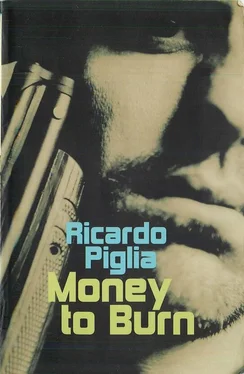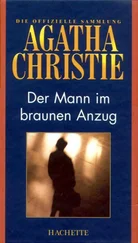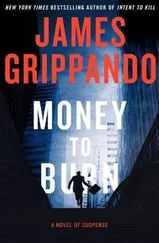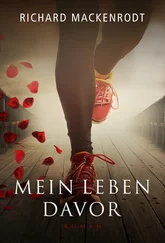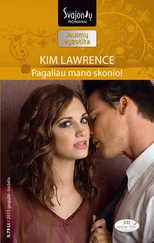Ricardo Piglia - Money to Burn
Здесь есть возможность читать онлайн «Ricardo Piglia - Money to Burn» весь текст электронной книги совершенно бесплатно (целиком полную версию без сокращений). В некоторых случаях можно слушать аудио, скачать через торрент в формате fb2 и присутствует краткое содержание. Год выпуска: 2004, Издательство: Granta UK, Жанр: Современная проза, на английском языке. Описание произведения, (предисловие) а так же отзывы посетителей доступны на портале библиотеки ЛибКат.
- Название:Money to Burn
- Автор:
- Издательство:Granta UK
- Жанр:
- Год:2004
- ISBN:нет данных
- Рейтинг книги:5 / 5. Голосов: 1
-
Избранное:Добавить в избранное
- Отзывы:
-
Ваша оценка:
- 100
- 1
- 2
- 3
- 4
- 5
Money to Burn: краткое содержание, описание и аннотация
Предлагаем к чтению аннотацию, описание, краткое содержание или предисловие (зависит от того, что написал сам автор книги «Money to Burn»). Если вы не нашли необходимую информацию о книге — напишите в комментариях, мы постараемся отыскать её.
Money to Burn — читать онлайн бесплатно полную книгу (весь текст) целиком
Ниже представлен текст книги, разбитый по страницам. Система сохранения места последней прочитанной страницы, позволяет с удобством читать онлайн бесплатно книгу «Money to Burn», без необходимости каждый раз заново искать на чём Вы остановились. Поставьте закладку, и сможете в любой момент перейти на страницу, на которой закончили чтение.
Интервал:
Закладка:
They had to go back across the 200 metres that separated the Bank (on one corner of the square) from the Town Hall (on the other corner).
'We're a little late,' Spector said.
The clerk set the engine running. The pick-up proceeded along Third of February Street at walking pace and when it turned the corner there was a screech of rubber on tarmac and the sound of another car accelerating alongside them.
The car was on top of them, driving against the one-way system, shooting through, as though driverless, and screeched to a halt.
'What does this madman think he's doing?' asked Martinez Tobar, still prepared to be amused.
Two guys leapt on to the pavement and one pulled a woman's stocking over his face (or so some witnesses said). He held a pair of scissors and stretched the nylon with the tips of his fingers, then, the stocking already pulled over his head, he slashed two holes level with his eyes.
Spector was a large man, with a look of helplessness about him, wearing a striped shirt blotched with sweat. Of the four of them travelling in the pick-up, he was the only one to survive. He threw himself on the floor and they fired at him from above, but they hit the metal lid of his pocket watch, which deflected the bullet. A miracle (that he happened to be wearing his father's pocket watch). He was sitting on the pavement outside the Bank, suffocating, watching people hurry by and the ambulances pass. Journalists were gathering at the spot and the police cordoned off the street. Eventually a patrol car halted and Police Commissioner Silva stepped down. He was the chief of police for the Zona Norte of Greater Buenos Aires and in charge of the operation. He got down from his car, dressed in plain clothes, with a pistol cocked in his left hand and a walkie-talkie in his right, out of which you could hear voices giving orders and dictating numbers, and he approached Spector.
'Come with me,' he said.
Following a moment's uncertainty, Spector got up, slow and scared, and followed him.
They proceeded to show the witness different photographs of robbers, gunmen and a selection of underworld characters who were potential authors of the deed, according to its most salient characteristics. Constrained by his overwhelming sense of confusion, the witness failed to recognize a single face (according to the daily papers).
When the car pulled up in front of them, Spector noted that it was 15.11 by the Town Hall clock.
A tall guy, dressed in a suit, got down from the car and, using both hands, pulled a woman's stocking down over his face, like someone pulling down a blind, and then he leant over the car seat and when he stood up again, he had a machine-gun in his hand. His head was made of rubber, of wax, shapeless, like a honeycomb stuck to his skin causing him to breathe deeply, or to snuffle, from where his voice emerged clipped and artificial. He resembled a wooden dummy, or perhaps a ghost.
'Let's go, Kid,' Dorda said, gasping for breath as if asphyxiating. And to the driver he said: 'We'll be back…'
Then Mereles accelerated, and the ready-fitted motor of the Chevrolet, with its racing-car engine and low-slung chassis, roared in the silence of siesta hour, on Town Hall Square, in San Fernando.
The Kid touched the medallion of the Virgin to bring himself luck and got out of the car. He was so thin and fragile and was so drugged that he looked diseased, as if he were a victim of tuberculosis, as they'd told the gunmen beforehand ('sick as a consumptive'), but he earnestly clasped the Beretta.45 in his two hands and when one of the guards moved, he discharged his weapon into his face. The bullet sounded dry, unreal, like a snapped branch.
Dorda had the nylon of the woman's stocking stuck to his face and breathed heavily through the fabric stuck inside his mouth. Off to one side he could see a guy getting down from the truck, and started to fire.
Two old fellows sunbathing on the plaza benches, along with a regular customer, busily perusing his newspaper seated at a table by the bar window opposite, saw how two or three men inside the Chevrolet 400, its plates registered in Buenos Aires province, leapt from the car, weapons in hand.
They seemed enraged, aiming at everyone in sight, sweeping the air in semi-circles as they approached, in slow motion, towards the pick-up. The tallest (according to the witnesses) wore a woman's stocking over his face, but the other one had his features exposed. It was the skinny one with the face of an angel, the one all the witnesses began to call 'the Lad'. He got out of the car, smiled, took aim at the rear end of the pick-up with his machine-gun, then fired off a round.
From the square, one of the retired chaps caught sunbathing saw how the bodies bounced off the seats and the blood splashed off the car windows.
'The fat one was alive when the round was over,' declared one of the old men, 'he tried to open the door and escape and at the same moment saw the guy with a woman's stocking pulled over his head walking along the middle of the road towards the pick-up, and threw himself down on to the pavement.'
He looked like a gigantic bundle, Fatso Spector, thrown against the car and all that in broad sunlight.
Over and again he was convinced they were going to kill him. He remembered the face of the skinny guy who'd regarded him with a glint of irony. Spector closed his eyes and prepared to die, but felt something like a kick in his chest and was saved by the metal watch his father had left to him.
The assailants he managed to catch sight of were two young men dressed in blue suits. Their hair was cropped short, very short, military style. When the firing was over, it was all he could do to run as far as the Bank and ask for help.
Now he was getting nervous, afraid that the police would accuse him of complicity in the handover.
'So you got to see the assailants at close range…'
It wasn't a question, but Spector answered it anyway.
'One was dark and the other blond, both were really young and with razored haircuts like soldiers.'
'Describe what you saw.'
He described one. It was Twisty Bazán.
'He was in the bar and then he crossed the square with a pistol in his hand.'
'You mean he was the driver, the one with a stocking over his face, the blond one, and then there was another.'
Spector nodded his head obediently. Had they told him there were four, he would have sworn that indeed, four there were.
The fellow with his face covered by a stocking moved quietly down the middle of the street, and seemed to be smiling, though perhaps this was a grimace induced by the silken mask he had put over his face and tied up on top like a bun. Martinez Tobar was wounded, lying on the floor, doubled over, leaning on his left side, with his briefcase tied to his wrist, and he wasn't able to see when the Kid pulled out the wire-cutters, sliced through the chain and picked up the briefcase with the loot in it, then, as he was moving backwards after all this, fired a shot at his chest. He was equally unable to see when the Gaucho with his stocking-covered face killed the policeman with a shot to the back of the neck.
He'd killed him, that Gaucho Dorda, not because the policeman posed a threat but just because. He killed him because he loathed the police more than anything else in the world and he imagined, in some irrational fashion, that each and every cop he killed would somehow not be replaced. 'One less', was the Gaucho's byword, as if he were reducing the number of troops possessed by an enemy army whose forces would never be renewed. If they carried on killing policemen as a matter of course, at once, without malice, like someone popping off sparrows, those condemned shits of policemen (born with the souls of policemen, souls of hicks), then they'd have to think twice before letting themselves be carried away by their vocation as public executioners, they'd become afraid of getting bumped off in their turn, and thus (he concluded) every day the army of slugs would have fewer troops. So he reasoned, but in a more muddled and lyrical style, as if he were killing cops in a dream, as if he'd been let loose in open countryside with a shotgun; this was the line of thought the Blond Gaucho would follow in his one-man war against the army of slugs.
Читать дальшеИнтервал:
Закладка:
Похожие книги на «Money to Burn»
Представляем Вашему вниманию похожие книги на «Money to Burn» списком для выбора. Мы отобрали схожую по названию и смыслу литературу в надежде предоставить читателям больше вариантов отыскать новые, интересные, ещё непрочитанные произведения.
Обсуждение, отзывы о книге «Money to Burn» и просто собственные мнения читателей. Оставьте ваши комментарии, напишите, что Вы думаете о произведении, его смысле или главных героях. Укажите что конкретно понравилось, а что нет, и почему Вы так считаете.
